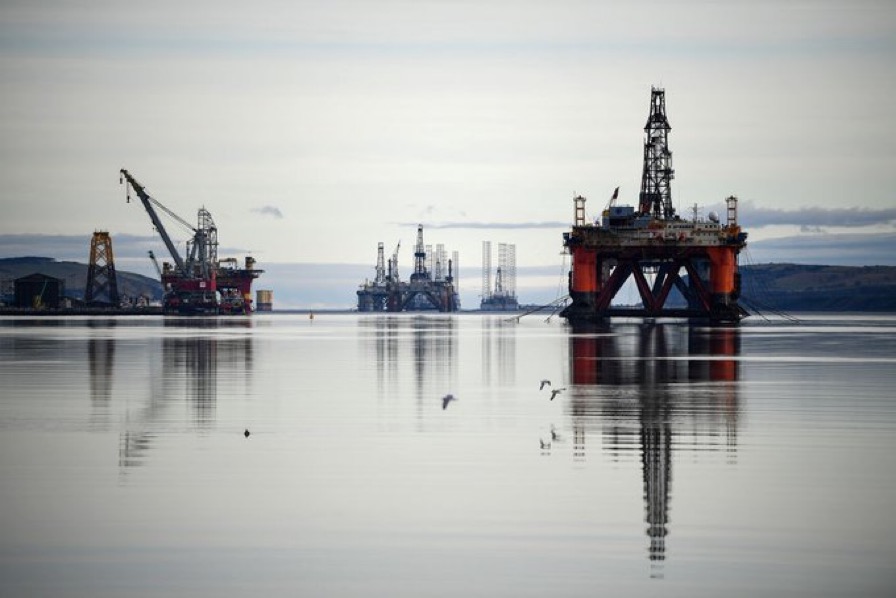Windfall ‘supertax’ proposal risks driving oil and gas investments from UK waters – and surging imports, warns Offshore Energies UK

The UK faced a £39 billion net import bill for oil, gas, and electricity between January and September this year – a five-fold increase over the same period last year, according to the latest government trade statistics.
The money flowed abroad to buy the gas, petrol and diesel needed for UK consumers to keep their homes warm, their vehicles on the road, their businesses running, and for generating electricity.
Details are contained in the latest import and export statistics released by the UK government. The huge amounts reflect the UK’s reliance on oil and gas which together provide 74% of the nation’s total energy.
The data has prompted Offshore Energies UK (OEUK) to warn that further import cost surges could follow, especially if the government implements its proposed ‘supertax’ on oil and gas production in Thursday’s autumn budget.
A supertax is a levy imposed on top of existing taxes. The UK’s oil and gas producers were paying an effective tax rate of 40% – the highest rate of any industrial sector – on the profits from oil and gas production, before the additional 25% windfall tax was imposed earlier this year. It means they are already paying a 65% tax rate.
If the UK government implements a further 10% tax hike it would push the overall tax level to 75% – a rate so high that many oil and gas producers would have to reconsider investment plans worth billions.
OEUK has told Mr Hunt that its members are proud to pay their taxes and have paid more than £400 billion since North Sea production began. However, it has also warned him that intelligent taxation and long-term fiscal stability were essential to the future of an industry that plans and invests over years and decades.
The UK, like many countries, routinely imports and exports energy to manage supply and demand, but domestic gas production plays a particularly important role in reducing reliance on imports. Domestic production has other benefits such as generating taxes and jobs, while also retaining the companies needed to invest in new oil and gas, for the short term, while driving the longer-term transition to lower-carbon energies.
Without such investment, OEUK warned, UK production would plummet and imports would surge so fast that, by 2030, the UK would have to import 80% of its gas and 70% of its oil – and risk the loss of tens of thousands of industry jobs. Tax revenues would plummet too because, as with all imported goods and services, oil and gas from outside of the UK are not subject to UK production taxes.
Energy security is another key reason for maintaining UK production. About 24 million UK homes rely on gas for heating, while 32 million drivers have vehicles powered by petrol or diesel. Around 42% of the nation’s electricity is generated by gas-fired power stations.
Replacing all this infrastructure with low-carbon alternatives is predicted to take at least three decades – during which secure supplies of oil and gas will be essential, albeit in diminishing amounts.
Deirdre Michie, chief executive of OEUK, said: “While the UK will always import and export energy it makes sense that we make the most of the resources in our own back yard, meaning the North Sea.
“We know that today, shortfalls in domestic gas production must be met by imports to help heat homes, power businesses and supporting UK manufacturing. With the UK paying a net £39bn for imports, people will wonder why we are not prioritising gas produced here and encouraging companies to invest in the North Sea.
“Gas which is shipped to the UK from across the world will also always have greater emissions than gas which is piped to our shores from the North Sea because of the extra energy needed to compress it, transport it and then turn it back into gas.
“We are proud to pay our taxes but the fresh uncertainty of further change risks the UK relying even more on other countries as companies struggle to attract investment.
“The UK and our industry are already in action, progressing a rapid transition to green energy – with UK companies set to invest up to £200 billion in offshore energies in this decade alone. The transition to low-carbon energies will only happen if we have the companies, jobs and innovation we need, based here in the UK.”




